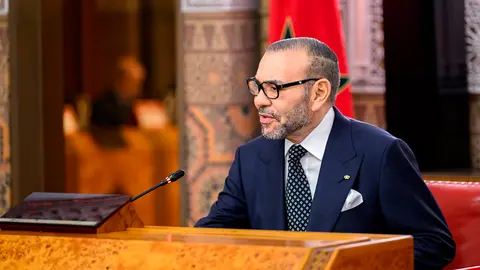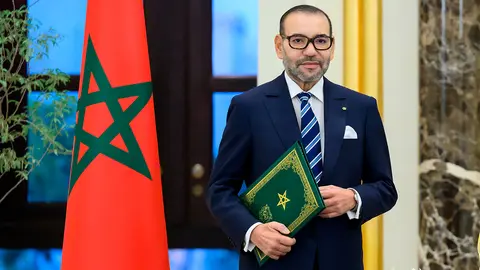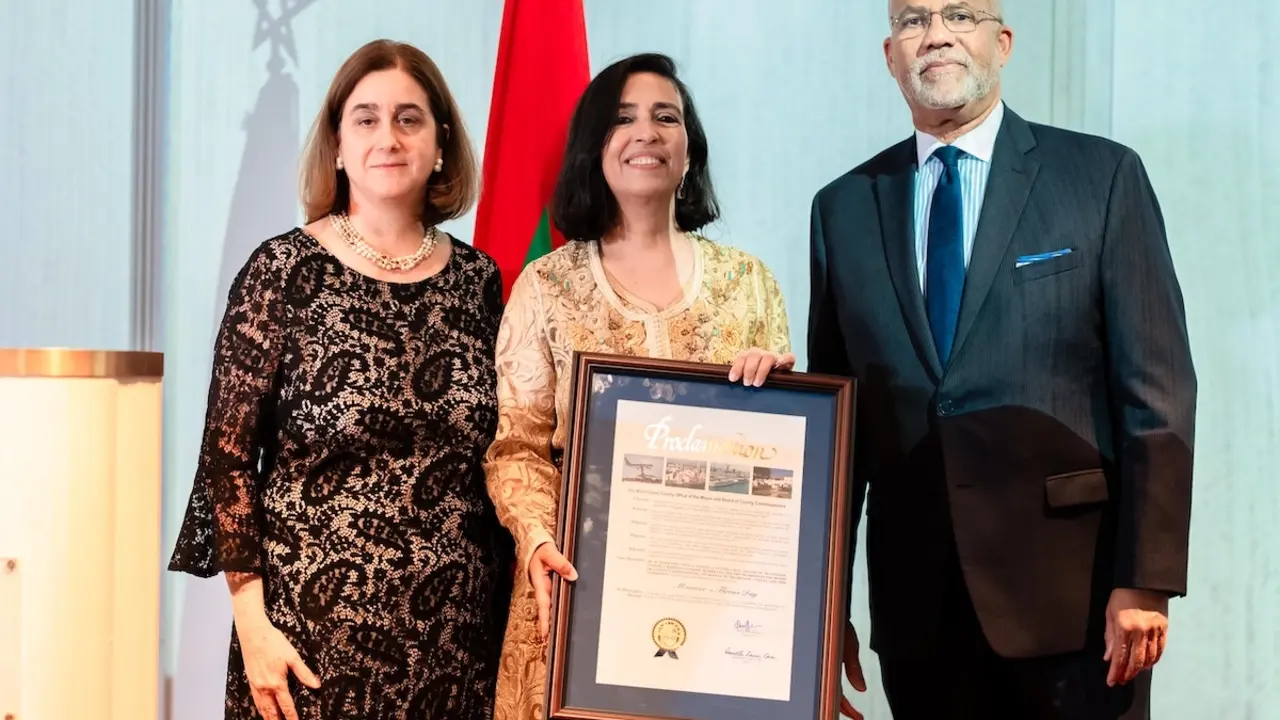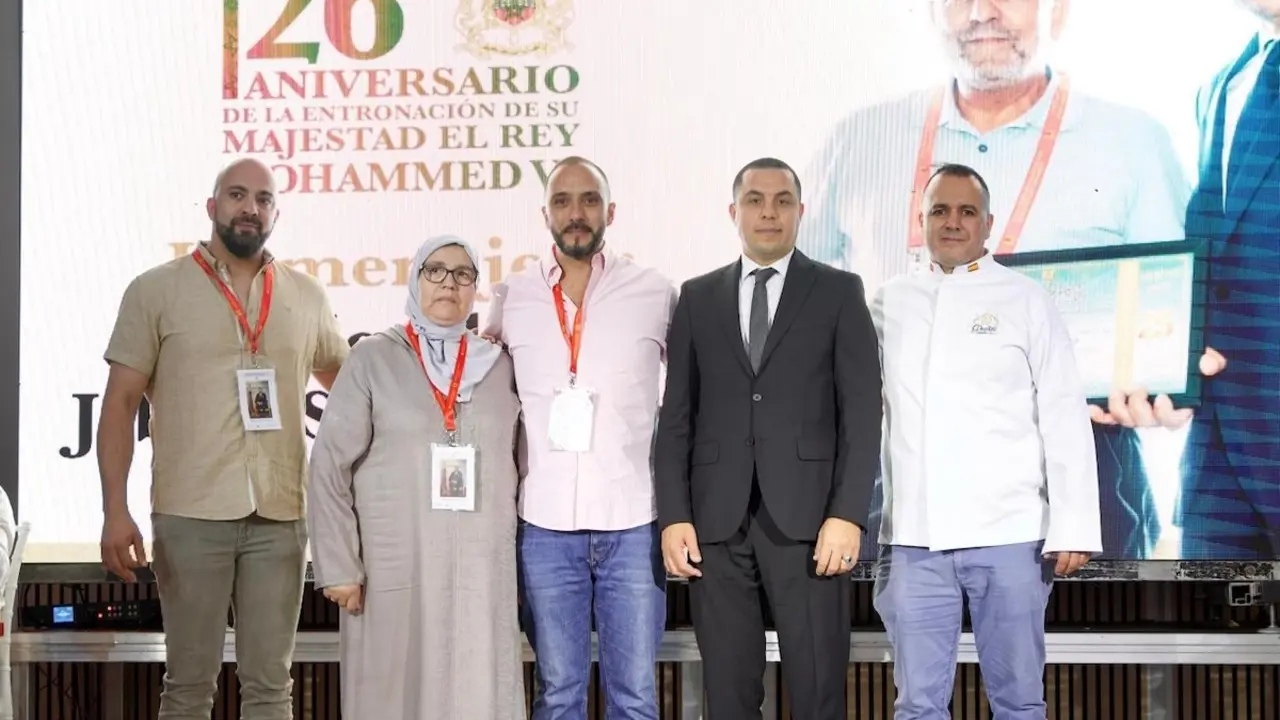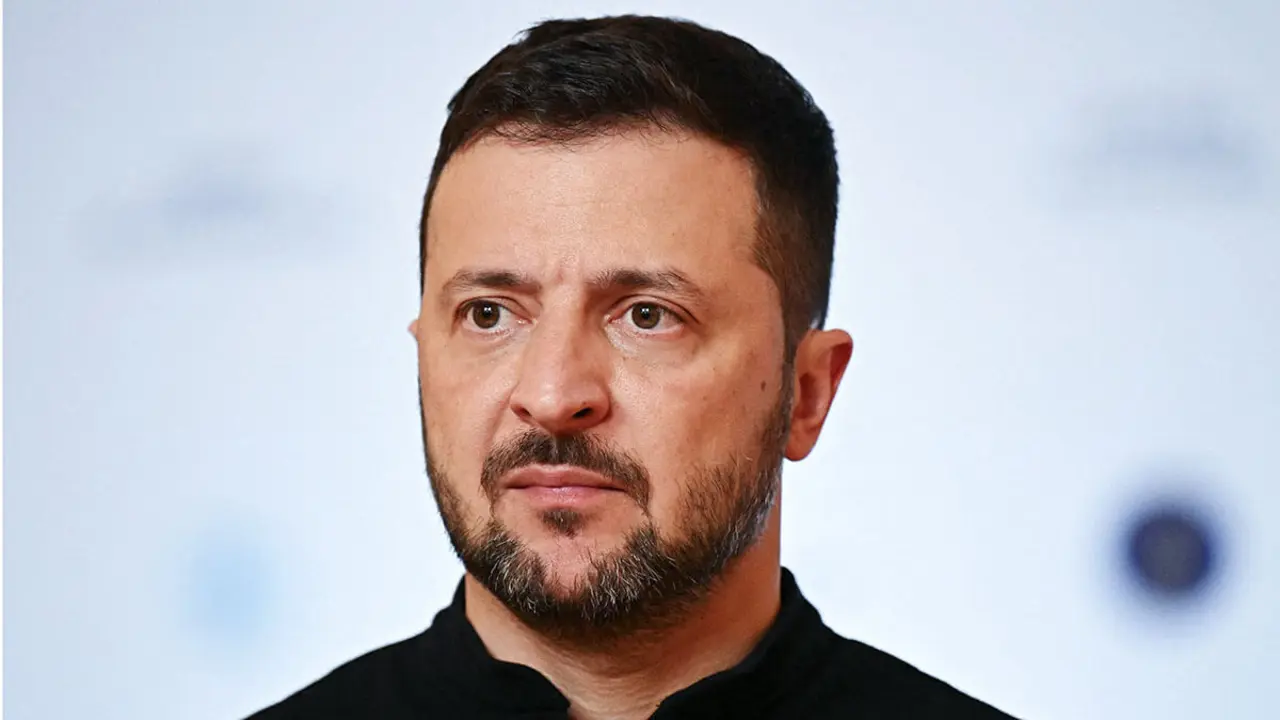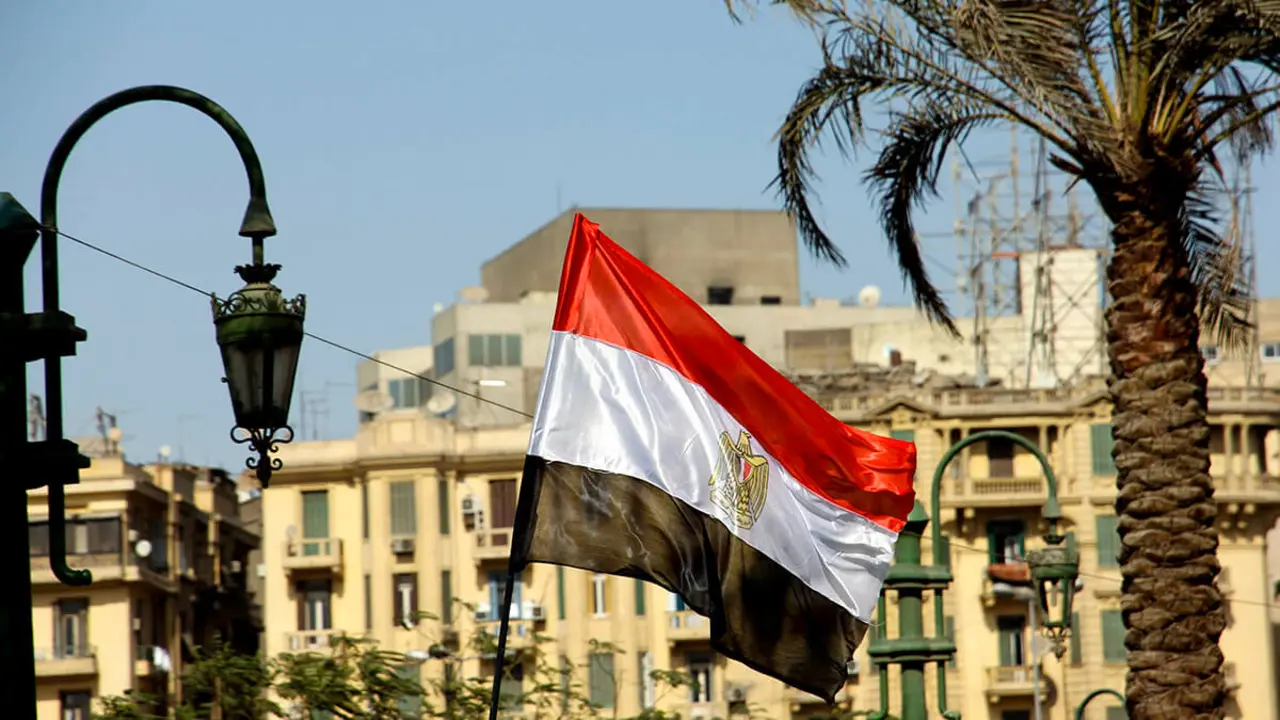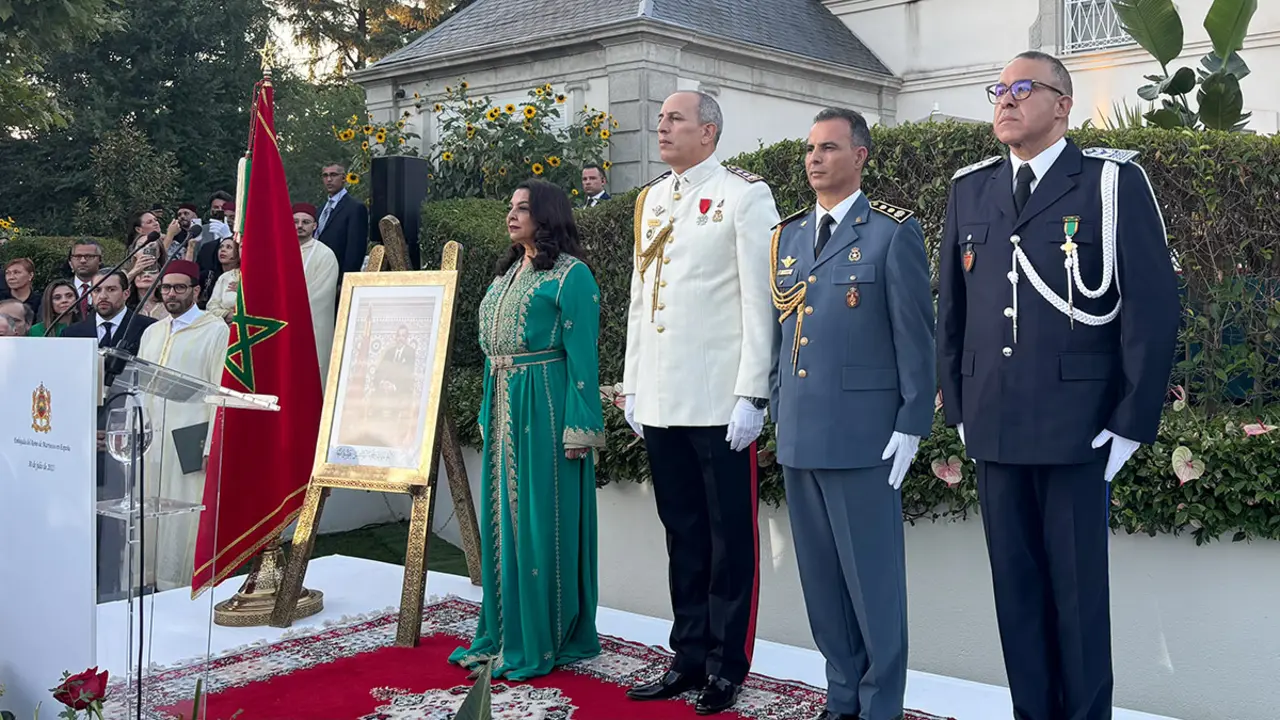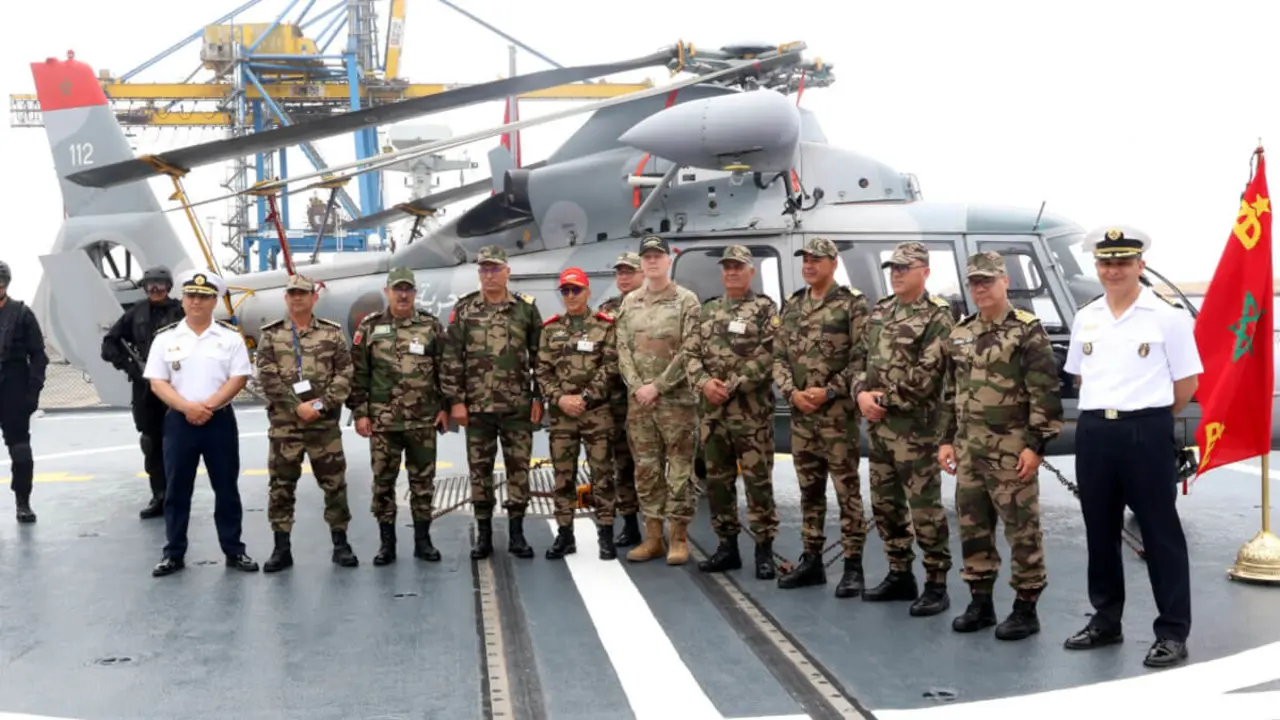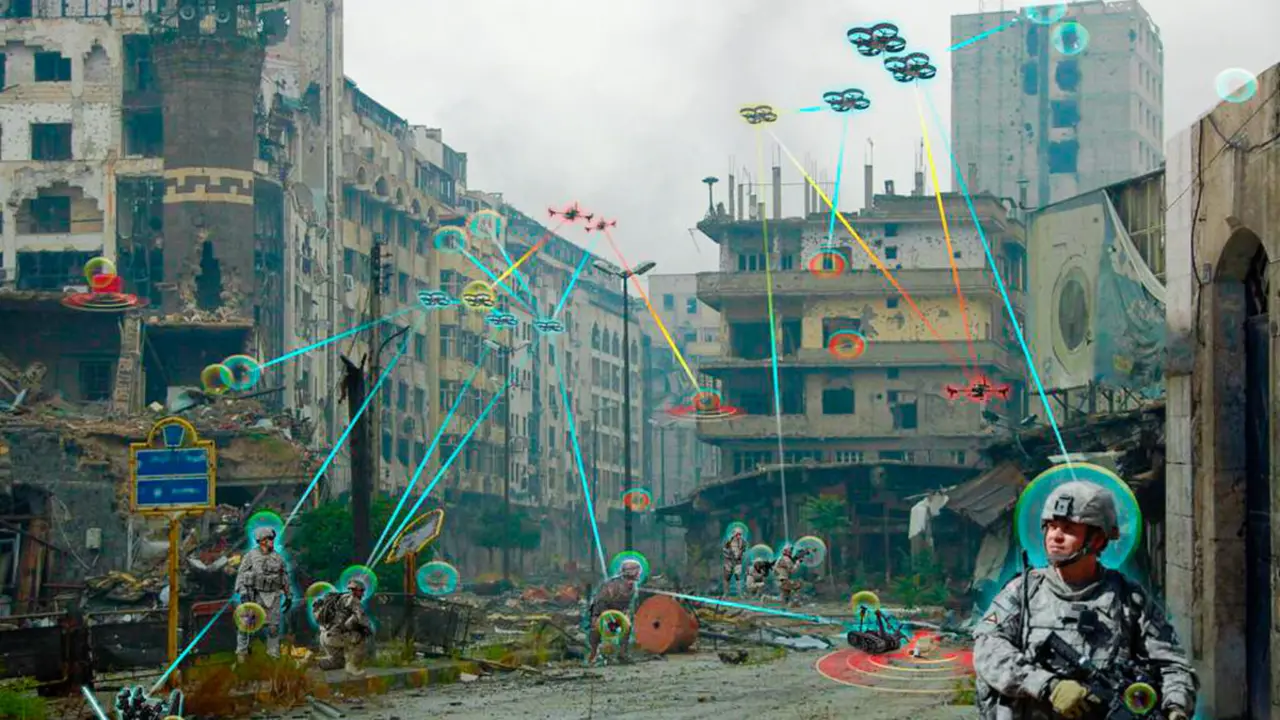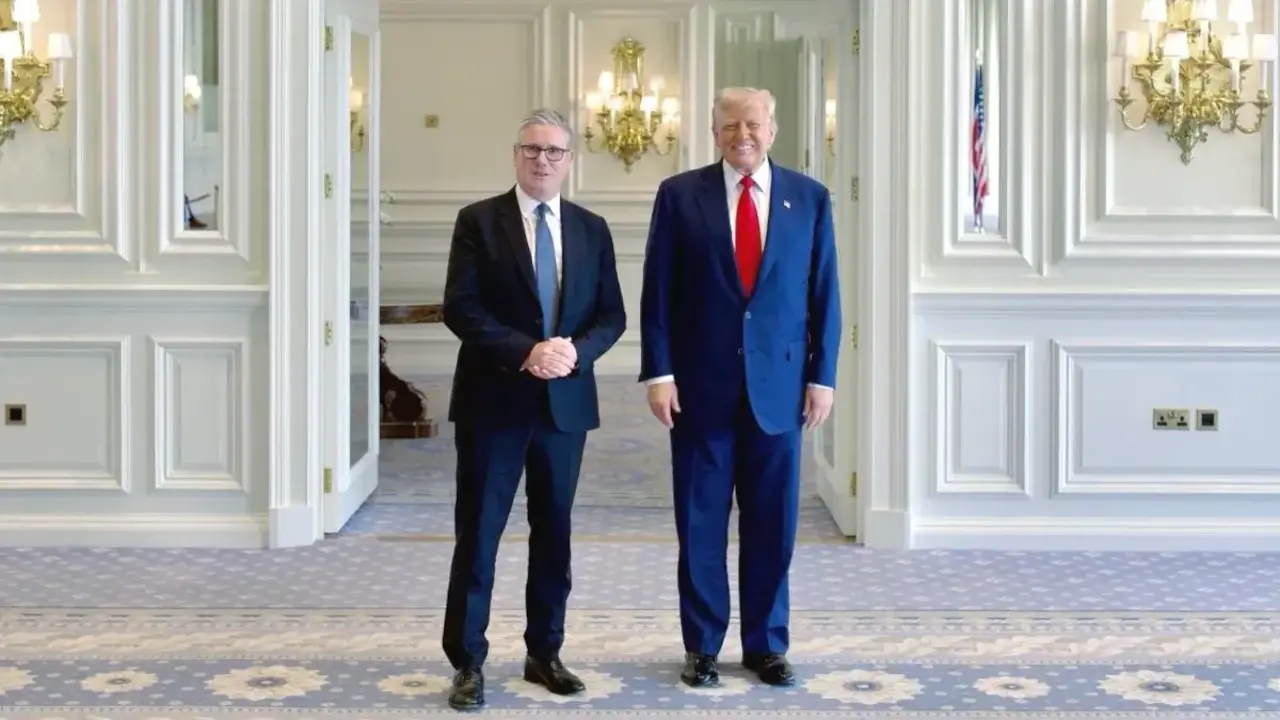Mohammed VI commemorates 25 years of reign with focus on water management and aid to the Palestinian people
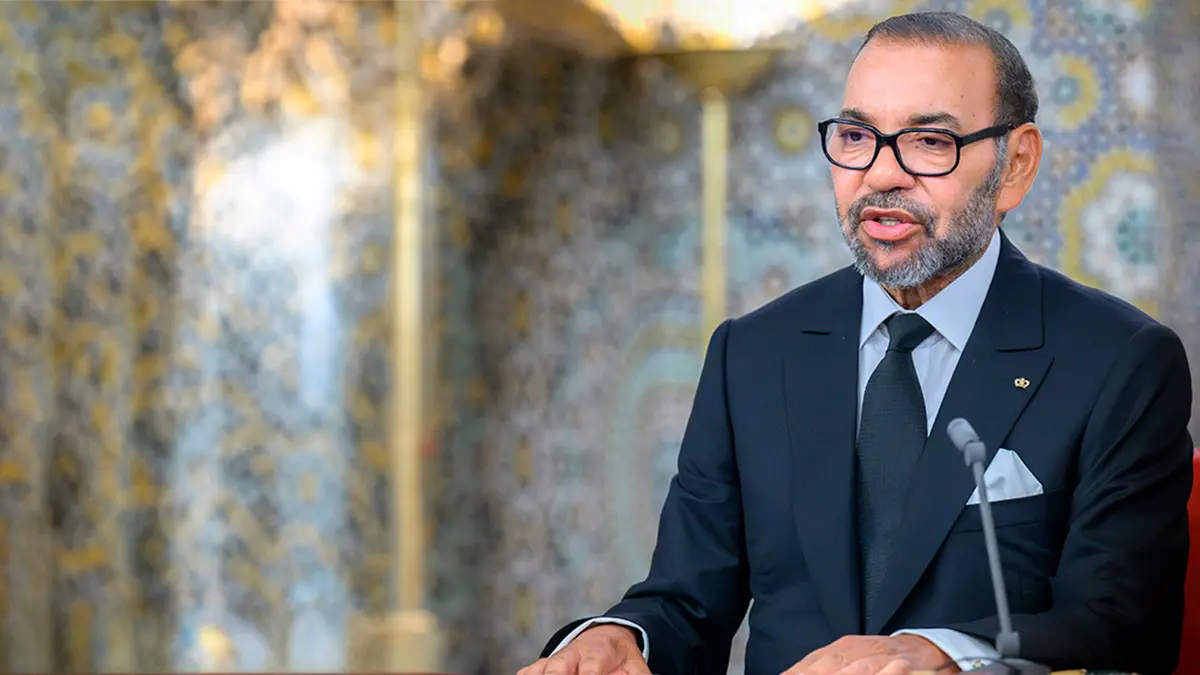
- Importance of water
- Concern for the Palestinian people
- National development
- Pardon for 2,476 people for the Feast of the Throne
The King of Morocco, Mohammed VI, gave his traditional speech on the Feast of the Throne, which this year marks the 25th anniversary of his enthronement.
Since Mohammed VI became King of Morocco in July 1999, the North African country has made spectacular progress in all areas. Social and economic development is clear, and diplomatic growth on the international stage is also palpable.
"During these years, we have been able to achieve a number of successes and accomplishments in the field of political and institutional reforms, strengthening the Moroccan identity," said the Alaouite monarch. "We have also launched numerous economic and development projects, as well as social programmes aimed at social cohesion, offering citizens access to basic services," he explained.
"We have worked for the enshrinement of territorial integrity, strengthening Morocco's position as an influential actor and a responsible and reliable partner, both regionally and internationally", he said, referring to the important role Morocco is currently playing in the world as a reliable partner in diplomatic and security matters in the face of international risks and threats, and also as an important element in the defence of Morocco's territorial integrity in relation to the many important supports Morocco has received in recent years for its proposal for autonomy under Moroccan sovereignty for Western Sahara with a view to settling the Saharawi dispute.
Importance of water
Mohammed VI also referred to the challenges still to be faced despite all that Morocco has evolved over the past 25 years, which calls for "greater efforts and vigilance" and "innovative solutions": "The challenges facing our country require greater efforts and vigilance, as well as innovative solutions and governance in management".
"The most important of these challenges" is that of water management, a very important resource for any country that has become scarce in the North African country in recent years due to climate change and the long-lasting periods of drought the nation has faced throughout this time.
"The most important of these challenges lies in the water problem, which is being exacerbated by drought and the impact of climate change, as well as the natural increase in demand, in addition to the delay in the implementation of some planned projects, within the framework of the water policy," the Alawite sovereign said.
"In order to address this situation suffered in many areas, especially in rural areas, we have issued our guidelines to the competent authorities to take all urgent and innovative measures to avoid any lack of water," said the King of Morocco.
"We continue to insist on the need for an optimal implementation of all components of the National Programme for Drinking Water Supply and Irrigation 2020-2027, which, thank God, has contributed to alleviating the seriousness of the water situation," he stressed.
With regard to the existing needs and difficulties, the King of Morocco said that he is insisting on "the necessary continuous updating of the mechanisms of the national water policy, setting a strategic objective for all vicissitudes and circumstances, namely: to guarantee drinking water for all citizens and to provide at least 80% of irrigation needs throughout the national territory".
King Mohammed VI called for the completion of the dam construction programme, giving priority to dam projects scheduled for areas with high rainfall.
He also called for "speeding up the implementation of major inter-basin water transfer projects, from Wad Lau and Lukus to Umm Errabia, via Sebu and Buregreg". "This will make it possible to use a billion cubic metres of water that was being lost to the sea," the Moroccan king explained.
These projects will provide "a balanced spatial distribution of national water resources", said the Moroccan king, who stressed that "it is also necessary to accelerate the completion of the seawater desalination plants, according to the programme established for them, which aims to mobilise more than 1.7 billion cubic metres per year".
"This will allow Morocco, by 2030, to cover more than half of its drinking water needs from these plants, in addition to irrigating large areas of agricultural land, which will contribute to strengthening the country's food security," he said.
Mohammed VI gave the example of the Casablanca desalination plant, which will be the largest construction of its kind in Africa and the second largest in the world, running 100% on clean energy.
Mohammed VI also appealed to the population for good water management and use, calling for greater responsibility, "because it makes no sense to spend billions to mobilise water resources, while this commodity continues to be squandered and misused".
He also insisted on "the need to encourage innovation, investing in the fields of new technologies related to the water management domain".
Concern for the Palestinian people
Mohammed VI did not want to forget "the tragedy" suffered by the Palestinian people either.
The Alawite monarch highlighted the aid given to the "brotherly" Palestinian people in the face of the bloody war in Gaza between the Israeli army and the Palestinian group Hamas. "In our capacity as chairman of the Al Qods Committee, we have worked to open an unprecedented way to get urgent food and medical aid to our brothers in Gaza," he said.
King Mohammed VI expressed his support for "constructive initiatives aimed at finding practical solutions to reach a concrete and permanent ceasefire and addressing the humanitarian situation".
The worsening of the situation in the region requires abandoning the logic of crisis management in favour of action to find a definitive solution to this conflict,‘ said the Moroccan monarch, who called for “the opening of a political horizon capable of establishing a just and permanent peace in the region”, “blocking the way to the extremists, wherever they are” for “the adoption of ”a just and permanent peace in the region", wherever they are for “the adoption of the path of negotiations to reactivate the peace process between the two parties, Palestinian and Israeli”, and “the two-state solution, where Gaza constitutes an integral part of the territories of the independent Palestinian state, with its capital in Al Quds East (East Jerusalem), for the establishment of security and stability in the whole region”.
National development
The King of Morocco also expressed "pride in the efforts deployed by all national forces and actors, in the public and private sectors, in favour of the development and progress of the country". This development and progress has been exponential under the reign of Mohammed VI over the last 25 years.
The Moroccan king's commitment to social and economic development has been clear. With projects such as the New Investment Charter, which provides incentives to attract direct foreign investment to generate wealth and employment, through the state mobilisation of 45 billion euros.
The country has evolved from a middle-income regional economy, with strengths and weaknesses, to a nation that performs well regionally, continentally and internationally. It now enjoys a diversified and dynamic economy and a Gross Domestic Product of close to 160 billion dollars, which has put Morocco on track to join the group of emerging countries in the next ten years.
The King of Morocco also referred to the North African country as a great reference point in security matters, a reliable partner for major powers such as the United States and various European countries in maintaining security in hotspots such as North Africa and, above all, the Sahel. A Sahel region for which the Alaouite monarch plans to develop the Atlantic Africa Initiative, which consists of facilitating access for various African countries, especially in the Sahel, to Morocco's Atlantic coast, including the territory of Western Sahara, in order to boost their economies and facilitate trade, which will lead to greater regional development.
"We cannot fail to express our praise and consideration to all the components of our Royal Armed Forces, Royal Gendarmerie, Territorial Administration, National Security, Auxiliary Forces and Civil Protection, for their dedication and permanent mobilisation under our leadership, in defence of the unity of the Homeland and its security and stability," he said.
Pardon for 2,476 people for the Feast of the Throne
King Mohammed VI took advantage of the traditional celebration of the Feast of the Throne to pardon 2,476 people, including detainees and persons on provisional release, who were sentenced by various Moroccan courts.
According to an official statement from the Ministry of Justice, as many as 16 people convicted under anti-terrorism laws received royal pardons, after undergoing rehabilitation through the ‘Moussalaha’ (Reconciliation) programme and taking up ideological initiatives that reject extremism and violence.
Among those pardoned are three journalists: Suleiman Raisuni, Omar Radi and Taoufik Bouachrine, who were sentenced to 5, 6 and 15 years in prison respectively, accused of various sexual crimes.
The full text of the Royal Address is reproduced below, broadcast by the official Moroccan news agency MAP:
"Praise be to God,
May peace and blessings be upon the Prophet, His Kith and Kin
Dear Citizens,
Today, we are proudly celebrating the twenty-fifth anniversary of my accession to the throne.
During these years, and by the Grace of the Almighty, we have accomplished a great deal in terms of political and institutional reforms and the consolidation of the Moroccan identity.
I have also launched many economic and development projects as well as social programs to achieve social cohesion and enable citizens to have access to basic services.
Furthermore, I have sought to consolidate the country’s territorial integrity and enhance Morocco’s standing as an influential player and a responsible, reliable partner at the regional and international levels.
Dear Citizens,
Our achievements enhance our self-confidence and nurture hope for the future.
Nevertheless, the challenges our country is facing require further efforts and vigilance, as well as more creative solutions and good governance.
And one of the greatest challenges we are facing today is that of water – a challenge which is becoming increasingly serious due to drought, the impact of climate change, a naturally growing demand and the delay in completing some of the projects planned as part of our water policy.
Six consecutive years of drought have had a profound impact on water reserves and groundwater, making the water situation more and more fragile and complex.
To address this situation, which many regions are suffering from, especially in rural settings, I have instructed the authorities concerned to take urgent, innovative steps in order to avoid water shortages.
Concurrently, I have been insisting on the optimal implementation of all components of the 2020-2027 National Program for the Supply of Drinking Water and Irrigation Water, which has contributed - by the Grace of the Almighty - to mitigating the severity of the water situation.
Given the growing needs and the constraints in this regard, I wish to insist on the regular updating of the national water policy mechanisms, and the establishment of a strategic goal - regardless of the conditions or circumstances - which is to provide drinking water to all citizens, and mobilize at least 80% of the irrigation water needed, across the national territory.
In this regard, it is necessary to complete the dam construction program and to give priority to the dams planned in the areas receiving significant rainfall.
In keeping with my ambitious, proactive and strategic vision, I recommend accelerating the completion of large-scale projects for inter-basin transfers: those from the Oued Laou and Loukkos basins to the Oum Er-Rbia basin, through the Sebou and Bouregreg basins.
This will make it possible to retain one billion cubic meters of water that is being lost to the sea.
Additionally, these projects will allow for a balanced distribution of national water resources across regions.
Just as importantly, we need to accelerate the completion of seawater desalination plants, according to the program set for this purpose, and which aims to produce more than 1.7 billion cubic metres annually.
Thus, by 2030, Morocco will cover more than half its drinking water needs thanks to these desalination plants. This will also make it possible to irrigate vast farming areas, thereby helping to enhance the country’s food security. A case in point, in this regard, is the Casablanca desalination plant, which will be the largest of its kind in Africa, and the second worldwide to be 100% powered by clean energy.
The greatest challenge remains the completion of the plants programmed and the related renewable energy projects on time and without delay.
And since water production from desalination plants requires supplying these facilities with clean energy, it is necessary to expedite the completion of the electrical connectivity project to transfer renewable energy from the southern provinces to the country’s central and northern areas as soon as possible.
With that in mind, I am calling for the development of a national water desalination industry as well as courses for the training of specialized engineers and technicians. I also encourage the creation of Moroccan companies specialized in the construction and maintenance of desalination plants.
In this regard, let me stress that there is no room for any negligence, delay, or mismanagement in such a crucially vital sector as that of water.
Dear Citizens,
Considering the efforts that are being made to provide water for us all, we ought to be honest with ourselves regarding the sound, rational use of water resources. Indeed, spending billions and billions in order to mobilize water resources, only to see that cases of waste and misuse continue to exist, is unacceptable.
Preserving water is a national responsibility that concerns all institutions and all stakeholders. It is also every citizen’s solemn duty.
I therefore call on the authorities concerned to be stricter when it comes to protecting the nation’s water resources, to set in place the water police, and to reduce the excessive use of water and chaotic water pumping practices.
I also urge further coordination and consistency between the water policy and the agricultural policy, especially in periods of water scarcity, and call for the use of drip irrigation across the country.
In the same vein, we need to adopt a more ambitious program for the treatment and reuse of water in order to make sure reclaimed water can serve as an important source to cover our needs in the areas of irrigation, industry, etc
Finally, I should like to emphasize the need to encourage innovation and investment in new water management technologies.
As regards the Kingdom’s southern provinces, the water desalination plants completed there have contributed significantly to the region’s economic and social development.
I therefore call for the expansion of the Dakhla plant and an increase in the production capacity of similar facilities in the future, relying, to this end, on these provinces’ significant potential for clean energy production in order to meet the needs of the population and of productive sectors there, such as agriculture, tourism, industry, etc.
Dear Citizens,
The keen interest we take in the situation prevailing in the country does not mean we are oblivious of, or insensitive to, the tragedy befalling our Palestinian brothers and sisters.
As Chairman of the al-Quds Committee, I managed to have an unprecedented route opened up, through which we delivered urgent food and medical aid to our brothers and sisters in Gaza.
And in keeping with the same spirit of commitment and responsibility, I continue to back constructive initiatives aimed at finding practical solutions, achieving a tangible and permanent ceasefire, and addressing the humanitarian situation.
The deteriorating conditions in the region require going beyond the logic of crisis management and seeking, instead, a final solution to this conflict, based on the following:
- First: If putting an end to the war in Gaza is an urgent priority, then this must be achieved concurrently with opening up political prospects conducive to a just and lasting peace in the region;
- Second: Opting for negotiations to revive the peace process between the Palestinian and Israeli sides requires cutting off the path for extremists - from whatever side they may come;
- Third: Achieving complete security and stability in the region can be realized only within the framework of the two-state solution, with Gaza an integral part of the territory of the independent Palestinian state, and East Jerusalem its capital.
Dear Citizens,
It is the responsibility of all citizens - male and female alike - to contribute to the development of the homeland and defend its best interests and just causes.
Having said that, I would like to say how much I value the efforts made by the nation’s stakeholders and driving forces, both in the public and private spheres, for the sake of the country’s progress and development.
I should like, in this regard, to express my appreciation to all members of our Royal Armed Forces, the Royal Gendarmerie, local government authorities, the National Security Forces, the Auxiliary Forces and the Emergency Services for their dedication and constant mobilization under my leadership to defend the nation’s unity, security and stability.
We pray for the souls of our righteous martyrs, foremost among them my blessed grandfather and revered father, Their Late Majesties King Mohammed V and King Hassan II - may they rest in peace.
I can think of no better way to conclude this address than with the words of the Almighty: “And God sends down rain from the skies, and gives therewith life to the earth after its death” - True is the Word of God.
Wassalamu alaikum warahmatullah wabarakatuh."

